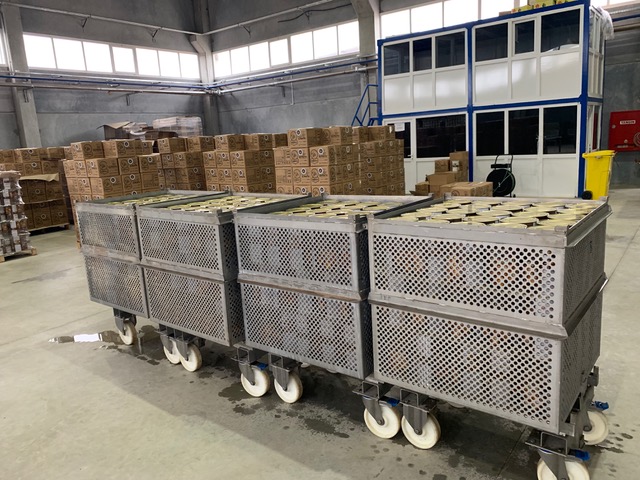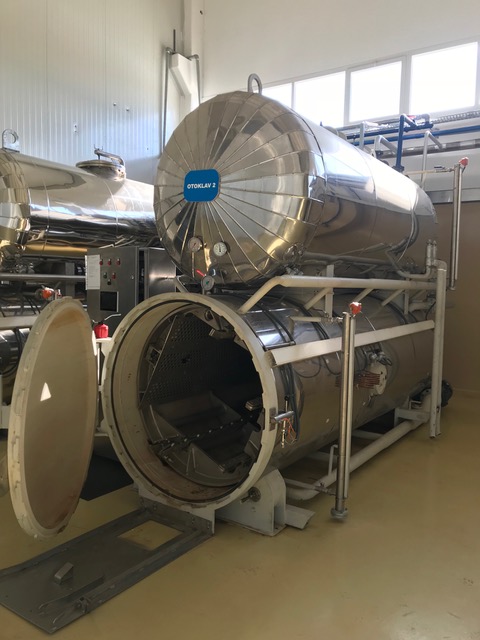Autoclaves are closed machines that operate in all heat treatments carried out above 100 ° C and atmospheric pressure.
During the heat treatment, the movement of canned food in the autoclave causes the product to shake. This facilitates heat conduction. Autoclaves that provide this are called rotary (retort) autoclaves.It is the autoclave basket with a full canned food container rotating in a rotary autoclave. Together with the rotating basket, the can itself rotates around itself, causing the product to shake. In conventional autoclaves, heat conduction mainly takes place by convection. If there are solid particles, since the heat conduction of these foods is provided by convection and conduction, the transmission of heat to the cold point becomes difficult and takes a long time.
Accordingly, the product overcooks and causes the structure of the product to deteriorate. Rotary autoclaves are widely used in a canned sterilization because of the following benefits is used ;It allows sterilization up to 130 ° C without problems such as sticking to the wall of the box, overcooking and burning in semi-liquid and heat sensitive products.Heat conduction is accelerated due to the movement given to the contents of the box, the cold point is reached in a short time, and thus sterilization is completed in a shorter time.The sensory properties of the product are better preserved due to high temperature and short sterilization.
Rotary autoclaves Similarly, high viscosity foods, semi-liquid foods (crushed foods) and solid foods can be easily sterilized even in large canned boxes with the help of rotary autoclaves.In some fatty products, especially meat products, a complete homogenization is ensured in the canister with the effect of the agitation created by the rotation during both sterilization and cooling, and the formation of an oil layer on the top is prevented in this type of canned food, such as in fixed autoclaves.



.jpeg)


